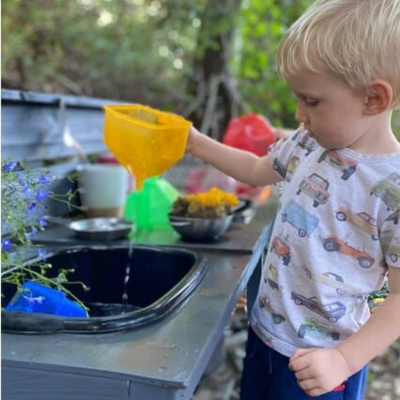Get exclusive deals you won't find anywhere else straight to your inbox.

Summer Holidays - Coping With Change
This week's theme is one very close to our hearts - the summer holiday transition! Transitioning from the structured environment of school to the more relaxed atmosphere of summer holidays can be both exciting and challenging. As parents we are faced with the demanding task of coping with change. Here are some ideas to help manage this change and have some fun this summer.
Manage Expectations
The best advice we can give to any parent or carer is to manage expectations. Both yours, and your child's. Quite simply, be prepared for things to not go as smoothly as you hoped, and don't take this as a sign of failure. Be calm and flexible in your approach and if needed, adjust the daily routine, activity or event to meet your child's needs.
Clear communication can help your child better understand the changes, and reduce anxiety. Discuss the changes in advance , talk about the upcoming holidays and what will be different. Share any plans you may have for days out, special events or holidays. You could also create your own social story to explain the changes in a way your child can understand.
Establish a Consistent Routine
The most difficult part of the transition is usually the change in routine and lack of structure. It may not be feasible to have such a structured routine as school, but setting a daily schedule throughout the summer holidays can really help. Try to maintain important elements of the day for example, having regular wake-up and bedtimes, meal times and activities. If possible, include elements of the school day that your child particulary enjoys. This could be story time, messy play or outside exploration.

Visual planners are great for showing the daily routine, and can help children visualise the days activities and better manage their own expectations. Use visual symbols to represent different parts of the day, or create your own to mimic your activity. You could even use a calendar to mark off the days leading up to, or during the summer holidays so your child can see the number of days left. Mark special events such as play dates, days out or holidays on the calendar.
Manage Sensory Needs
Pay attention to your child’s sensory preferences and needs. They may be more anxious, overwhelmed or excited during the summer holidays. Help them manage their behaviour by creating a sensory-friendly environment. Use tools that your child responds well to such as weighted blankets or lap pads, noise reducing ear defenders, sensory chews or fidget toys.

However you structure your day, be sure your routine includes time for sensory breaks, where your child can release energy or receive sensory feedback from resources they respond well to and enjoy. This could be time spent playing inside a sensory den to calm and relax, or jumping inside a body sock for proprioceptive input.
Stay Active & Outdoors
The summer holidays are also a great opportunity for having some fun, allowing you to spend more quality time with your child. Getting outside and enjoying some fresh air has many health benefits, and can be a fantastic way to pass the time, with little to no expense. You could plan visits to parks, gardens or nature trails that are accessible. Or look for any local groups or summer holiday classes that might suit your child. This could be a good opportunity to meet up with friends and maintain social contact.

For days out, be sure to pack a handy bag with on the go sensory resources. Our essential holiday grab bag contains ear defenders, fidget toys and sensory chews (also available without chews) to help you manage sensory overload whilst out and about.
Pursue Skills Development
Summer can be a good time to focus on developing new skills. It can also help children who thrive off structured, repeated activities. Set aside time within your daily routine to practice certain skills. Why not try working on some fine motor skills such as pencil grip, threading or mastering tying shoe laces. You could even get out in the garden and practice balancing and coordination to help with gross motor development.

Engaging in activities that reinforce learning, such as reading, puzzles or educational games can be great fun! Why not challenge yourself to read a new book together over the summer? Or create a diary of your activities to share with your class when you return.
Tips For Success
If you have any tips or ideas for managing the summer holiday transition, we'd love to hear them!
Most importantly, however you choose to spend your summer holidays, we hope it's a smooth and enjoyable transition.

